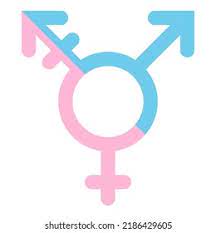Hormone therapy has become a common treatment for various conditions, from menopause symptoms to gender transition. However, many people have concerns about its potential impact on fertility. The relationship between hormone therapy and reproductive health is complex and often misunderstood. In this article, we’ll dive into the basics of hormone therapy, explore its effects on fertility, and clarify common myths to help you make informed decisions regarding your health.
Understanding Hormone Therapy: The Basics Explained
Hormone therapy (HT) involves the administration of hormones to address imbalances and alleviate symptoms associated with various conditions. For example, women experiencing menopause may use estrogen or progesterone to relieve hot flashes and mood swings. Transgender individuals may use testosterone or estrogen as part of their transition process. The type of hormone therapy prescribed often depends on the individual’s needs and health conditions.Transgender Health ClinicTrans That Look Like WomanTransgender Affirming
While hormone therapy can provide significant relief from symptoms and improve quality of life, it also raises questions regarding its long-term effects, particularly on fertility. It’s crucial to understand that hormone therapy is not a one-size-fits-all solution. Each individual’s response can vary based on age, dosage, and the specific hormones involved.
How Hormone Therapy Works in the Body
Hormone therapy functions by introducing synthetic hormones into the body to balance hormone levels that may be too high or low. For example, estrogen therapy can help alleviate menopausal symptoms by compensating for the body’s decreased production of this hormone. Similarly, testosterone therapy in transgender men helps to develop male secondary sexual characteristics.
The way these hormones work can also affect various bodily systems, including the reproductive system. Hormones play a crucial role in regulating the menstrual cycle, ovulation, and the overall reproductive process. Understanding how these hormones interact with the body’s natural rhythms can shed light on their potential impact on fertility.
Infertility and Its Many Causes: A Quick Overview
Infertility is defined as the inability to conceive after one year of unprotected intercourse for couples under 35, or after six months for those over 35. It’s a complex issue, and many factors contribute to infertility, including age, genetics, lifestyle choices, and underlying medical conditions. For women, conditions like polycystic ovary syndrome (PCOS), endometriosis, and uterine abnormalities can hinder fertility.
For men, infertility may stem from low sperm count, hormonal imbalances, or structural issues with the reproductive system. Since infertility can arise from various sources, it’s essential to consider all potential contributing factors rather than attributing it solely to hormone therapy.
Can Hormone Therapy Affect Your Reproductive Health?
The short answer is: it can, but the effects are not always straightforward. For individuals assigned female at birth, hormone therapy can temporarily suppress ovulation, which may affect fertility. For instance, women undergoing estrogen therapy may experience changes in their menstrual cycles, making it difficult to predict ovulation.
In transgender men, testosterone therapy can lead to changes that may reduce the chances of conception, such as menstrual cessation and ovarian function alteration. However, many individuals on hormone therapy still retain the ability to conceive, and fertility may return after stopping treatment. It’s essential to discuss these specifics with a healthcare provider to understand how hormone therapy may impact your individual reproductive health.
The Science Behind Hormones and Fertility Issues
Hormones are crucial in regulating the intricate processes of reproduction. They control everything from the timing of ovulation to the preparation of the uterine lining for potential implantation. Hormone therapy alters the levels of these hormones and can disrupt the finely-tuned hormonal balance necessary for conception.
Research shows that while hormone therapy can influence fertility, the effects are often reversible. For example, studies indicate that fertility may return after discontinuation of hormone treatments. However, the timeline for this recovery can vary among individuals, making it vital to monitor reproductive health regularly while undergoing hormone therapy.
What the Research Says: Facts and Myths
There are many myths surrounding hormone therapy and fertility, including the belief that it invariably leads to infertility. While hormone therapy can affect reproductive capabilities, this doesn’t mean it will cause irreversible infertility. Research indicates that the majority of individuals who stop hormone therapy experience a return of their fertility.
It’s also crucial to differentiate between types of hormone therapy. Some forms, such as long-term estrogen use, may have different implications for fertility compared to testosterone therapy. Consulting reliable sources and healthcare professionals can help dispel myths and provide accurate information tailored to individual circumstances.
Personal Stories: Experiences with Hormone Therapy
Many people have unique experiences with hormone therapy that can shed light on its varied effects on fertility. For instance, some women report difficulties conceiving while on hormone therapy, but after pausing treatment, they found it easier to become pregnant. Conversely, others have successfully conceived while undergoing hormone therapy, demonstrating the complexities of individual responses.
Transgender individuals may share their stories about the challenges of balancing hormone therapy with their desires for biological children. Some have successfully pursued options like sperm banking or egg freezing before starting hormone treatments, ensuring that they can still have biological children if they choose to do so in the future.
Next Steps: Talking to Your Doctor About Fertility
If you’re considering hormone therapy or are currently undergoing treatment, it’s essential to have an open dialogue with your healthcare provider about your fertility goals. Discussing your concerns and asking questions can help you better understand how hormone therapy may impact your reproductive health.
Your doctor can provide personalized advice based on your medical history and treatment plan. They may also suggest options for preserving fertility, such as egg or sperm freezing, if you’re worried about the potential effects of hormone therapy. Being proactive and informed will empower you to make the best decisions for your health and future.
Navigating the world of hormone therapy and fertility can be overwhelming, but knowledge is power. By understanding the basics of hormone therapy, its effects on reproductive health, and the available options for preserving fertility, you can take control of your health journey. Always remember that you’re not alone in this process—talk to your healthcare provider, gather information, and make choices that align with your goals.


